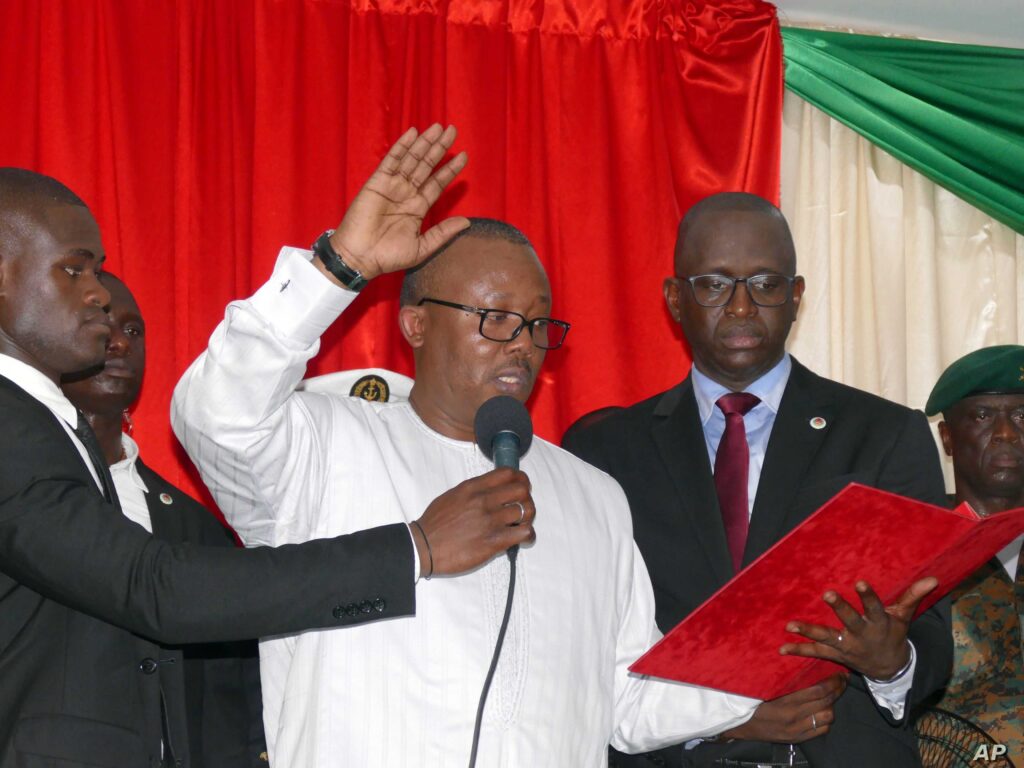
An ongoing dispute in Guinea-Bissau over December presidential election results, is casting a military shadow over the West African country.
After rival parties both inaugurated different presidents, troops this week occupied the Supreme Court building and shut down state broadcasters, raising concerns of a possible coup.
Guinea-Bissau’s military is occupying the Supreme Court and other government buildings, and state media has been shut down as the two main political parties compete for power.
The military this week oversaw the placement of ministers appointed by opposition Madem G15 party leader Umaro Cissoko Embalo, who won a surprise victory in December’s presidential election.
The electoral commission says Embalo won the December 29 polls with around 54% of the vote. But, the long-ruling African Party for the Independence of Guinea and Cape Verde (PAIGC) has alleged fraud and misdeeds.
“We are not okay with the results that were given, he says, because we think there were a lot of irregularities in the electoral process,” said Ansoumane Sanha, director of Cabinet for the president of parliament, which is dominated by the PAIGC.
When the ruling party sought to challenge the election results for the third time at the Supreme Court, the military moved in.
Embalo held a hasty inauguration ceremony last week in a privately-owned hotel that used to be a Portuguese military base.
The military then went to the homes of the existing government of Aristides Gomes and confiscated the keys to government cars.
Gomes spoke to journalists about the incident on Sunday in his living room.
“I was clearly threatened,” he said, adding, “it’s a bad sign.”
The ruling-party-led National Assembly countered on Friday by inaugurating its member and president of parliament Cipriano Cassama as interim president.
But Cassama stepped down on Sunday, citing alleged threats to himself and his family.
“I have no security,” he said. “I decided to take this decision to avoid the confrontation of the two sides, he says, and to avoid war.”
Despite the military and political maneuvering, analysts argue Embalo is the legal president.
“After the elections that everyone called the most transparent elections, free elections, everyone, even the international community, the situation is that there was no reason for PAIGC to go to the Supreme Court,” said Amadu Djamanca, the executive secretary of the Guinea-Bissau Observatory of Democracy and Governance.
But the Economic Community of West African States (ECOWAS) called Embalo’s swearing-in of his government as “outside of the law.”
Defense Minister for Gomes’ ousted government Luis Melo said he fears the situation may get worse.
“I think there needs to be an urgent intervention,” he said.
The U.N. Security Council called on all parties in Guinea-Bissau Thursday to respect legal and constitutional frameworks.
The U.N. statement expressed support for a mediation team from ECOWAS, which is expected to meet with the Supreme Court and the National Electoral Commission.
(VOA)










Recent Comments